Intriguing and often overlooked, Eliab's story in the Bible sheds light on divine selection, challenging our perceptions of worthiness and leadership.
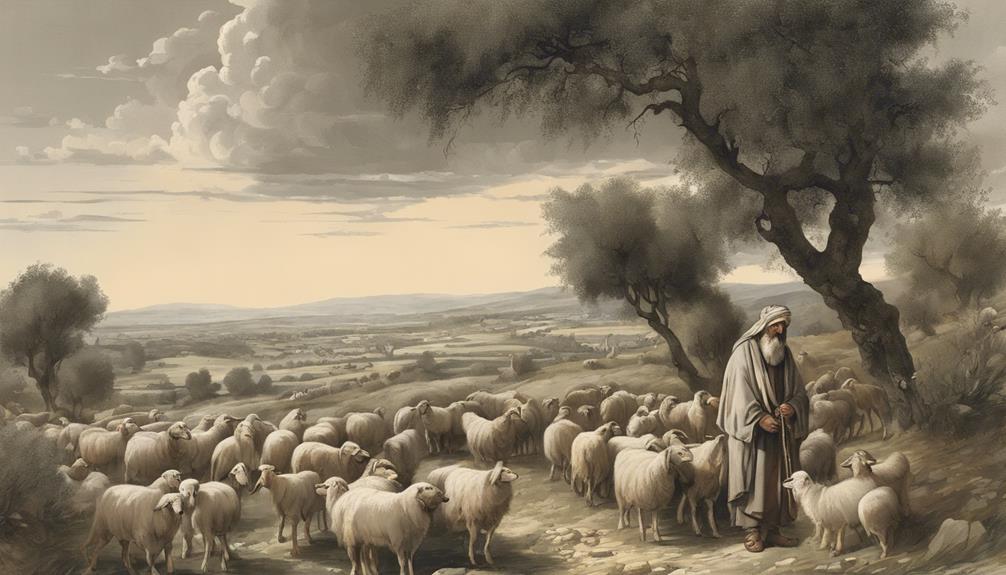
Who Is Eliab in the Bible
You might think Eliab is just another obscure figure lost in the expansive narrative of the Bible, but his story offers more than meets the eye. As the eldest brother of David, Eliab's interactions with the future king of Israel reveal complexities in their family dynamics and hint at broader themes of leadership and divine selection.
When Samuel came to anoint David, Eliab's initial rejection sets the stage for a profound lesson on God's criteria for leadership. Understanding Eliab's reaction to Goliath and his role in David's life will challenge your assumptions about the nature of true strength and worthiness.
These insights not only illuminate his character but also invite you to explore the less obvious, yet impactful, figures of biblical history.
Key Takeaways
- Eliab is the eldest son of Jesse, brother to King David, and a figure from the tribe of Judah.
- His story is marked by sibling rivalry with David, reflecting themes of leadership and divine selection.
- Eliab's reaction to David's anointing by Samuel and encounter with Goliath showcases his jealousy and leadership challenges.
- Lessons from Eliab's narrative emphasize the importance of overcoming jealousy and recognizing true leadership qualities.
The Identity of Eliab
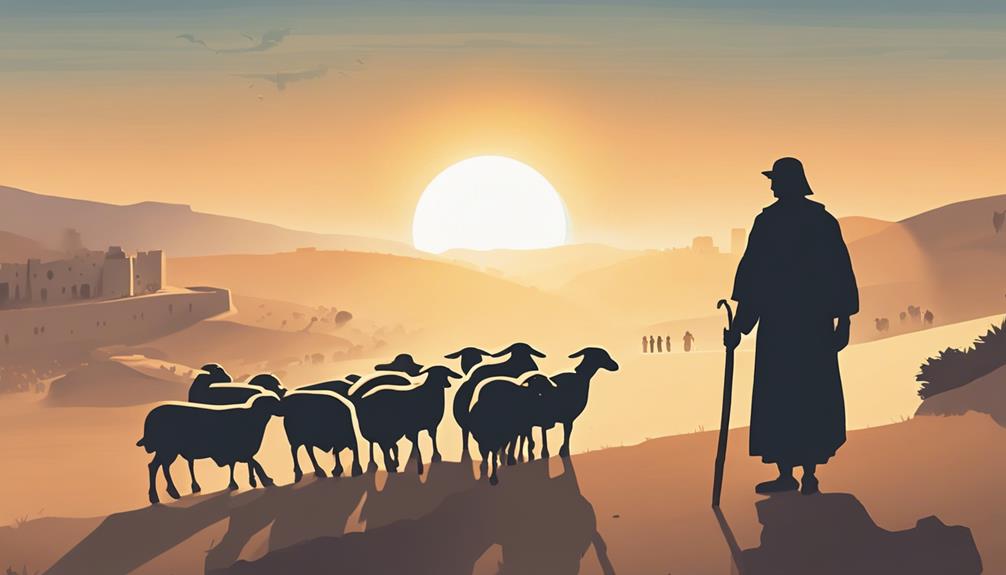
Eliab, a lesser-known but significant biblical figure, emerges from the ancient texts of the Bible as the eldest son of Jesse and the brother of King David. His presence within the scripture, although not as prominently featured as David's, provides a fascinating glimpse into the lineage and familial dynamics of a pivotal era in biblical history. Eliab's lineage, deeply rooted in the tribe of Judah, underscores the significance of his family in the unfolding narrative of the Israelites. This connection not only highlights the prestigious background from which King David arose but also situates Eliab within a context of prophetic and kingly aspirations.
Biblical mentions of Eliab, though sparse, serve a crucial function in delineating the genealogical and cultural backdrop against which the stories of Samuel and the early kings of Israel are set. By examining these references, you can discern the vital role Eliab's family played in the transition from judges to monarchy in Israelite society. Through such analysis, it becomes apparent that Eliab's identity is intricately tied to the broader themes of leadership, divine favor, and the complexities of familial loyalty within the biblical narrative.
Eliab and David's Relationship
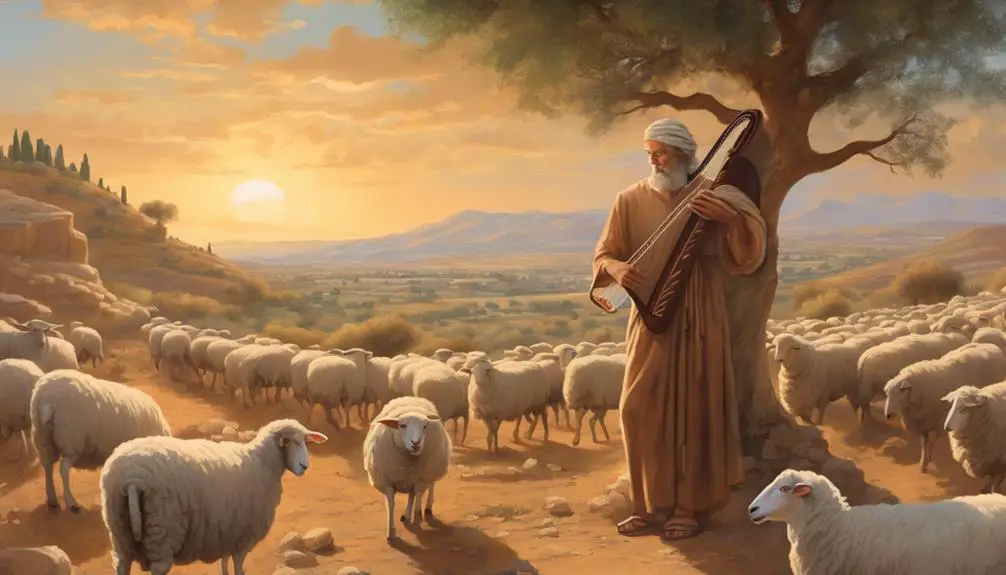
Delving into the relationship between Eliab and David unveils a complex interplay of familial bonds, rivalry, and the shaping of destiny within the fabric of biblical narratives. This dynamic is rooted in:
- Sibling Rivalry: At the heart of Eliab and David's relationship lies a profound sibling rivalry. You see, Eliab, as the eldest brother, might've expected to inherit not just the tangible assets of his family but also to assume a position of leadership and authority. David's emergence as a favored figure disrupts these expectations, introducing tension and competition between them.
- Leadership Qualities: Both brothers exhibit distinct leadership qualities, yet their approaches and destinies diverge significantly. Eliab's leadership style is traditional and perhaps more in line with what was expected of an eldest son in biblical times. In contrast, David's leadership is characterized by an unconventional path, marked by divine favor and a series of extraordinary achievements.
- The Shaping of Destiny: The interactions between Eliab and David reflect broader themes of destiny and divine selection, which are pervasive throughout biblical stories. Their relationship underscores the idea that leadership and favor aren't always aligned with societal expectations or birth order, challenging the norms of their time.
In dissecting their relationship, you encounter a narrative rich in lessons about the complexities of brotherhood, the unpredictability of destiny, and the multifaceted nature of leadership.
The Anointing by Samuel
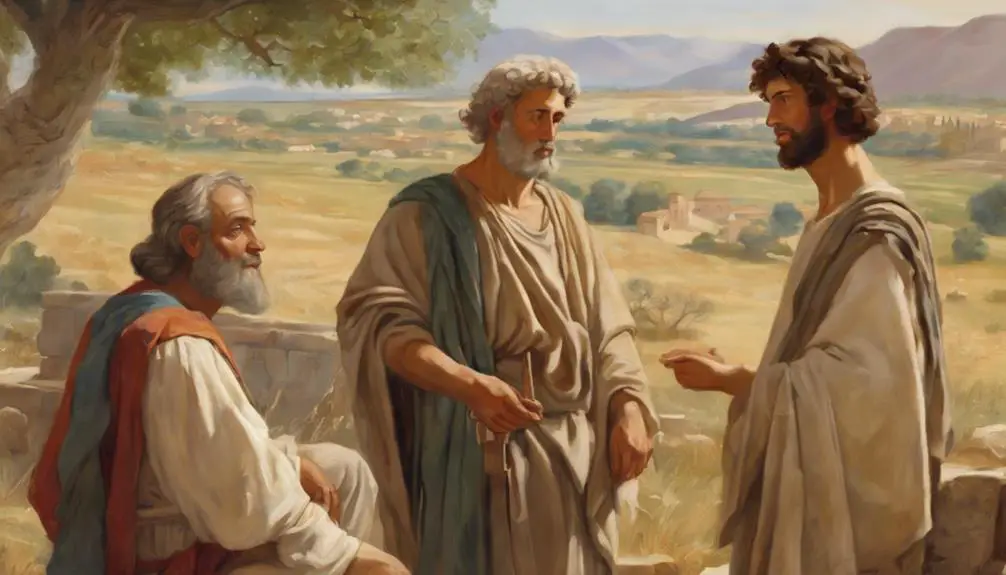
Exploring the pivotal moment when Samuel anoints David, we uncover a significant turning point that not only alters the trajectory of David's life but also illuminates the complex dynamics within his family, particularly with his brother Eliab. This event, steeped in divine intervention, showcases Samuel's discernment and underscores the principle that God's choice often defies human expectations. Samuel, initially guided by Eliab's appearance, assumes he's the chosen one. However, God instructs Samuel to look beyond outward appearances, emphasizing that He judges by the heart. This moment of revelation highlights the depth of Samuel's discernment, guided by divine wisdom rather than human judgment.
The anointing of David, in the presence of his brothers, including Eliab, marks a critical juncture. It's not merely a ceremonial act; it signifies the transfer of divine favor and kingship from Saul to David. This act, rooted in God's choice, sets the stage for the unfolding of David's destiny. It also subtly shifts the familial and social dynamics, as Eliab witnesses his younger brother being chosen for a role he, or any eldest son, might've expected to inherit. This moment encapsulates the divine preference for inner worth over outward appearances, a theme that reverberates throughout the biblical narrative.
Eliab's Reaction to Goliath
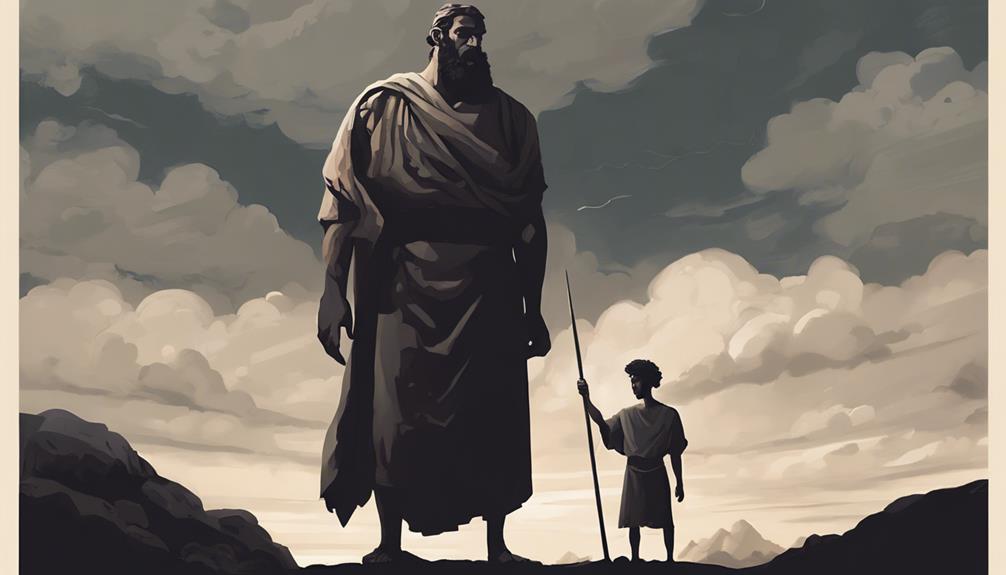
In the biblical narrative, when David confronts Goliath, his brother Eliab's response reveals deep-seated familial tensions and complexities. Eliab's reaction is multi-faceted, reflecting not only his personal feelings towards David but also broader themes of leadership and courage in the face of adversity.
Specifically, Eliab's response showcases:
- Eliab's Fear: His immediate reaction is colored by fear, not only of the imposing Goliath but also of the potential repercussions of David's boldness. This fear reflects a common human emotion when faced with seemingly insurmountable challenges.
- Questioning David's Motives: Eliab questions David's presence on the battlefield and accuses him of arrogance and negligence of his shepherding duties. This accusation could be interpreted as Eliab projecting his insecurities onto David, underestimating David's faith and courage.
- Lack of Leadership Qualities: Eliab's reaction contrasts sharply with David's fearless approach to Goliath, highlighting Eliab's lack of leadership qualities. While David steps up to face the challenge head-on, Eliab's response is one of avoidance and criticism, indicating a reluctance to confront difficult situations.
Eliab's reaction to Goliath serves as a complex counterpoint to David's fearless faith, illustrating the tensions and dynamics within their family and shedding light on the broader themes of fear, leadership, and faith in the face of adversity.
Lessons From Eliab's Story
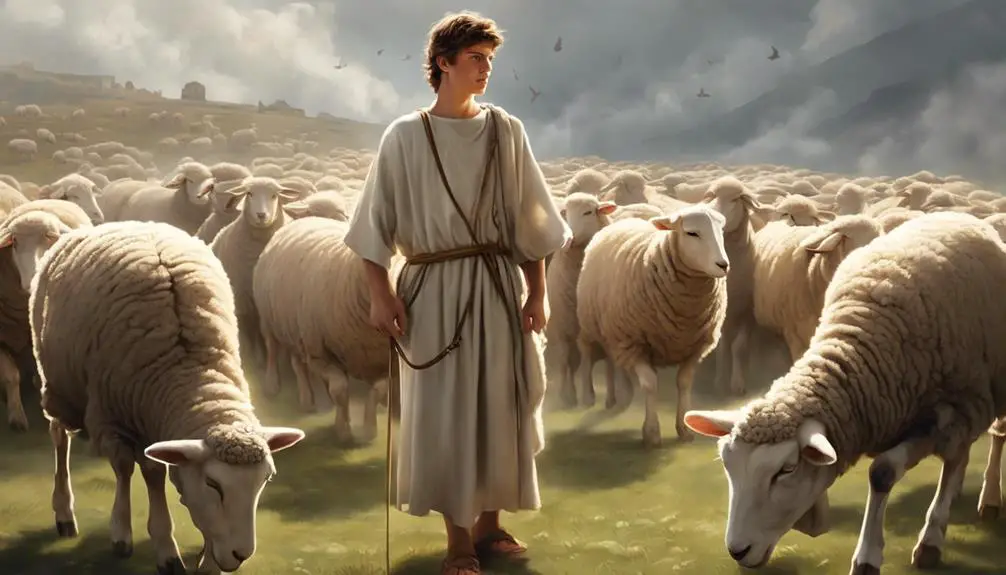
Eliab's story offers valuable lessons on the consequences of letting fear and jealousy cloud one's judgment and hinder leadership potential. Through his interactions, particularly with his younger brother David, we're provided a vivid example of how negative emotions can distort perception and impede the recognition of true leadership qualities.
Aspect |
Eliab's Misstep |
Lesson Learned |
|---|---|---|
Family Dynamics |
Jealousy towards David |
Value each member's unique contributions |
Perception |
Underestimation of David's capabilities |
Look beyond appearances to discern true potential |
Leadership Qualities |
Failure to lead in crisis |
Courage and faith are integral to effective leadership |
Eliab's failure to embrace and support David's emergent leadership not only reflects on his personal shortcomings but also underscores the broader implications for those in positions of influence. His inability to see beyond the immediate fear of Goliath and jealousy towards his younger sibling's courage highlights a critical flaw: the lack of vision and faith, which are essential leadership qualities. Eliab's story, thus, serves as a cautionary tale about the importance of overcoming personal biases and fostering a supportive environment that nurtures the growth of all individuals, irrespective of their role within family dynamics or societal hierarchies.
Frequently Asked Questions
How Does Eliab's Genealogy Connect Him to Other Notable Biblical Figures Aside From David?
Exploring the intricate family dynamics within the Bible, you'll find Eliab's genealogy fascinatingly intertwined with royal lineage, extending beyond his connection to David.
His ancestry not only links him to significant biblical figures but also underscores the complex relationships that shaped the narratives of the time.
This deep dive into his lineage reveals the broader context of his family's role in the unfolding of biblical history, offering a richer understanding of their collective impact.
What Are the Different Hebrew Meanings or Interpretations of Eliab's Name, and How Do They Reflect His Character or Destiny?
Eliab's name carries deep significance, reflecting his character and perhaps foreshadowing his destiny. In Hebrew, it can mean 'God is Father' or 'My God is Father,' symbolizing a divine favor and leadership quality. This interpretation highlights his potential for greatness and his standing within his community.
Analyzing the etymology provides insights into his role and how his lineage and actions might align with these attributes, offering a nuanced understanding of his biblical narrative.
Are There Any Extrabiblical Texts or Historical Records That Mention Eliab or Provide Additional Context About His Life and Times?
You're exploring if archaeological findings or historical records outside the Bible mention Eliab, providing more layers to his story.
Unfortunately, there's scant evidence directly connecting Eliab with extrabiblical texts. However, understanding the cultural significance of his era through such sources can offer indirect insights into his life and the societal structures he inhabited.
While direct references are rare, the broader archaeological context enriches our understanding of the times he lived in.
How Does Eliab's Story Inspire or Influence Christian or Jewish Liturgy, Hymns, or Religious Practices Today?
You'll find Eliab's leadership and his story's spiritual symbolism subtly woven into modern Christian and Jewish practices. While not always directly mentioned, his influence is there, inspiring hymns and shaping liturgical themes.
This integration serves as a testament to his enduring legacy within religious traditions. By analyzing these elements, you'll uncover how his narrative has been interpreted and adapted over time, offering insights into the evolving nature of faith-based practices.
What Are Some of the Artistic Representations of Eliab Throughout History, and How Do They Depict His Role in David's Story?
You'll find Eliab's artistic evolution fascinating, reflecting his role in David's story across centuries. Artists have depicted him in various ways, each interpretation shedding light on cultural impact and perceptions of biblical narratives.
These representations range from medieval manuscripts to Renaissance paintings, where Eliab often appears in scenes highlighting his interactions with David. This diversity not only showcases artistic styles but also offers insights into how Eliab's story resonates with different audiences.
Conclusion
In examining Eliab's narrative, it's evident that his story offers profound insights into human nature and divine selection. Despite Eliab's outward qualifications, God's choice of David over him underscores the divine preference for inner virtue over external appearances.
Eliab's interactions with David, marked by jealousy and misunderstanding, reflect common human frailties. Thus, Eliab's account serves as a critical reminder of the importance of humility, the fallibility of human judgment, and the unfathomable wisdom of divine decisions.

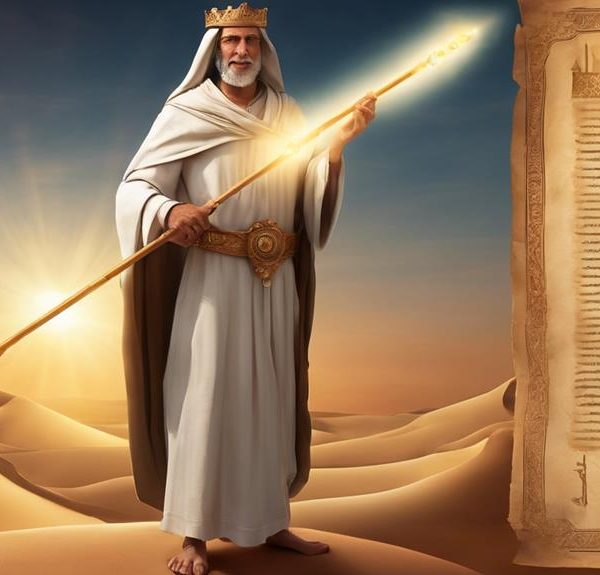
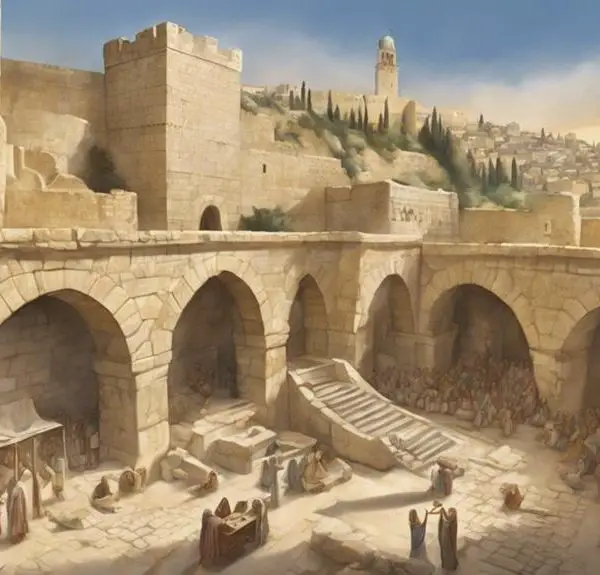
Sign up